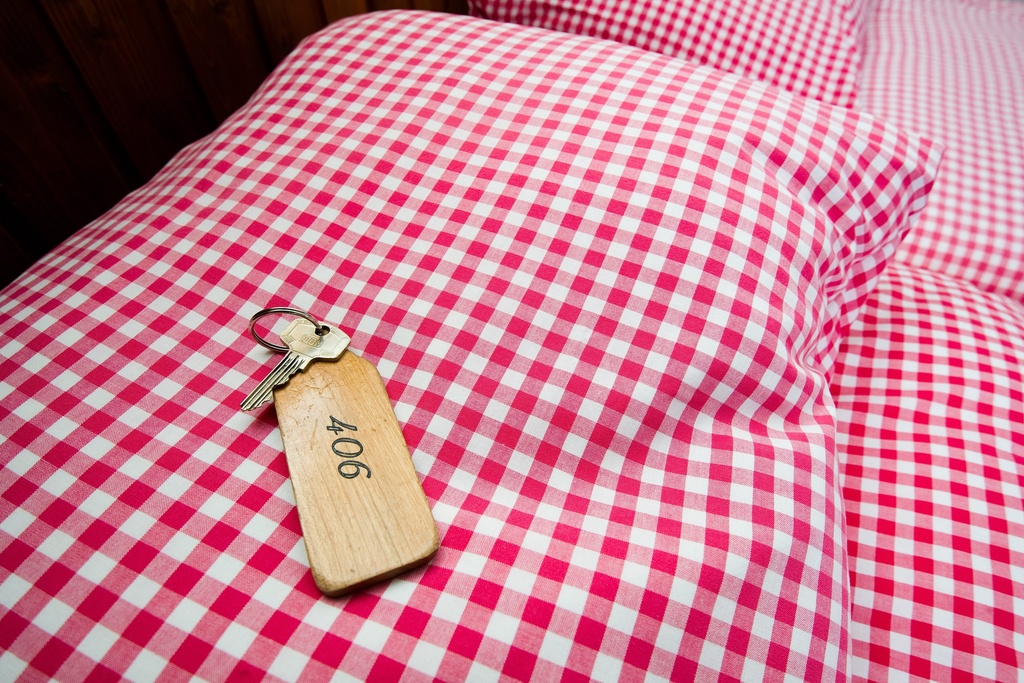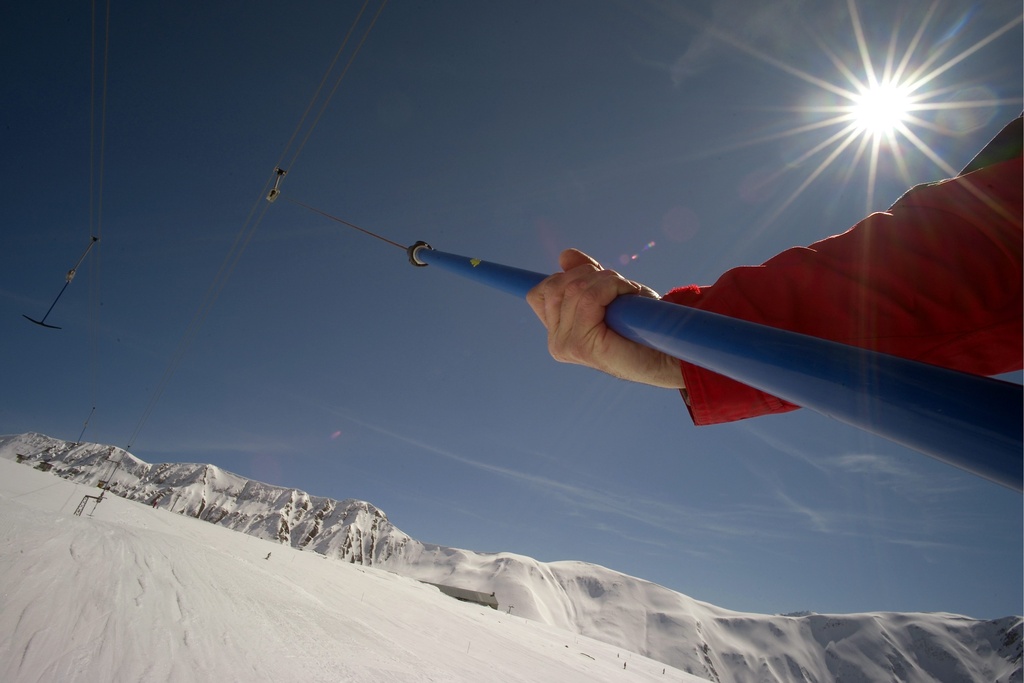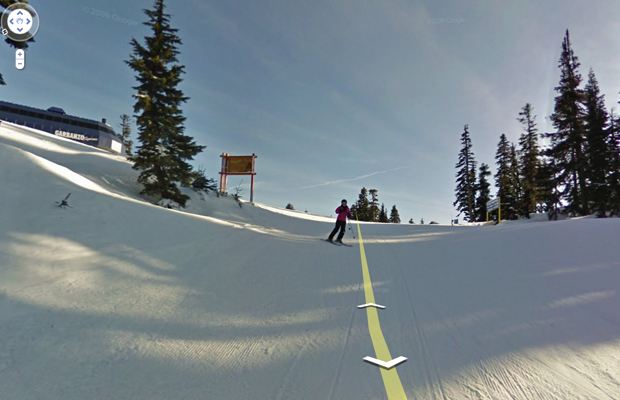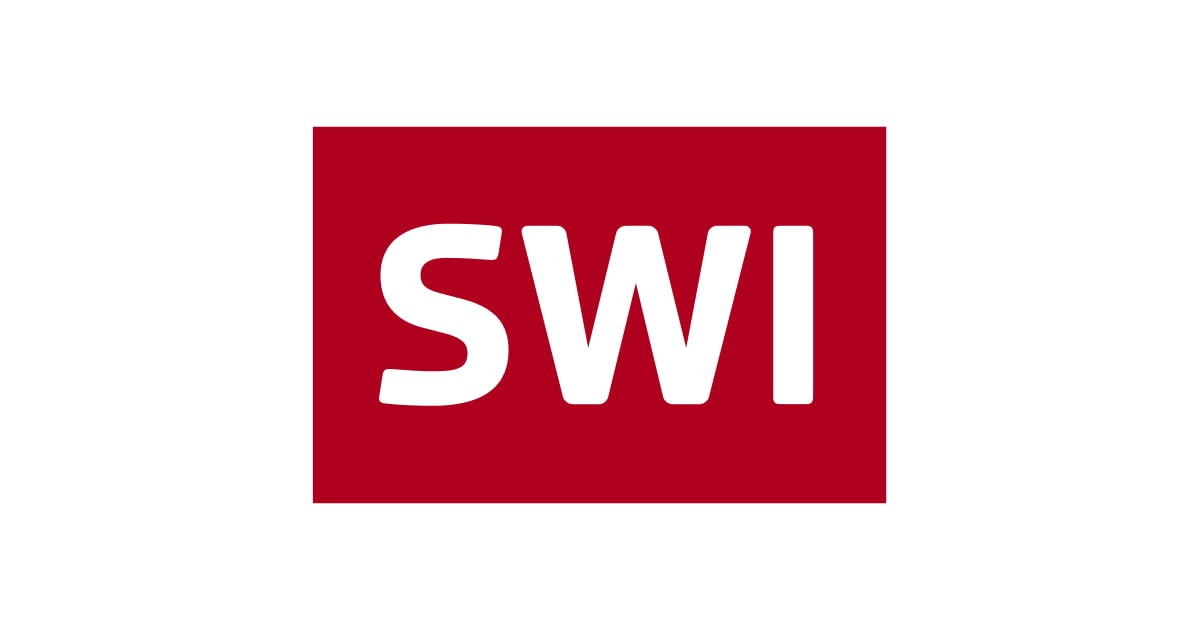Zermatt fights to weather strong franc storm

On Zermatt’s busy high street alphorn players entertain German tourists while electric hotel buggies inch their way around families, climbers and day-trippers.
swissinfo.ch visited Switzerland’s most popular mountain resort, which relies exclusively on tourism, to find out how it was coping with the strong Swiss franc.
Bruno waits in the doorway of the Monte Rosa Hotel. Despite the hustle and bustle in the street, his dozen tables are almost empty.
“It’s a bit quieter than usual,” the young waiter explains. “I saw a report on TV about the impact of the strong franc, but we seem to be less affected here.”
But this is a tough time even for a premier resort like Zermatt, and the hotel, like many others, plans to close a week earlier than usual in September to prepare for winter.
“I’m going to Portugal until December so I don’t mind. I just get a week more holiday,” Bruno says.
Zermatt, with its iconic Matterhorn and other spectacular peaks, seems to be doing better than many other Swiss resorts in attracting tourists and weathering the storm of the strong franc, which has gained about 25 per cent in value against the euro and the dollar over the past four years. But many local officials are anxious.
“If you look at turnover in general, we suffer like everyone else,” explains Daniel Luggen, director of Zermatt’s tourist office. “But if you look at the number of visitors, we have seen only a small decrease.”
Last winter the number of overnights dipped by 2.5 per cent compared with the previous year and after a 0.3 per cent rise from January to June, a three per cent fall in July and an “excellent” August, he predicts a repeat of last year – zero growth for summer.
Apprehensive
The numbers of holidaymakers may be stable, but visitors seem to definitely be watching their wallets. Estimates of the falls in takings range from five to 50 per cent.
“Overnight bookings may be at the same level, but our prices are not as high as before,” says Andreas Biner, president of the Matterhorn Group, which manages 12 hotels, restaurants and shops.
Zermatt’s mayor Christoph Bürgin is apprehensive. “The dollar is not so bad but the euro and pound are big problems. Our number three guests are the British [after the Swiss and Germans] and the British market is the best one for us in winter,” he says.
Jack Hurrell, who works in summer at a souvenir shop and in winter as a ski guide, confirms the British were much more cautious with their francs.
“It used to be a full day of ski lessons and a big expensive lunch but now it’s just half a day of lessons, a few days to themselves and no lunch,” he says.
Swiss luxuries
Our packed red train climbs to the top of the Gornergrat mountain, 3,135 metres above sea level.
Eager crowds rush out to snap the stunning views of the Matterhorn and Gorner Glacier. On the Gornergrat Kulmhotel terrace groups of mostly Swiss pensioners chat noisily while sipping wine and eating lunch. But this is a luxury for others.
“We’ve been coming for years to Zermatt, but we’ve really noticed the prices this year,” says Caroline Woodliffe, a British woman from Surrey. “The trains, food and drink are really expensive.”
The Kehls, a French family from Strasbourg, snapped up an offer for three days for the price of two at Zermatt’s youth hostel.
“We used to come here regularly. The last time we got 1.45 Swiss francs for one euro; it’s now 1.1 – it’s a third more expensive. So we’ve reduced the length of our stay; instead of one week we stay for three days,” Mrs Kehl says.
“Zermatt is no longer accessible to the average French visitor. It’s reserved for the elite from Japan and the United States.”
Food and shopping
The hot weather means most people are hiking today somewhere in the region so it is not surprising that many of the high-street restaurants are half empty.
But there are reports that independent restaurants are losing trade to hotels that offer inclusive deals on lunches and dinners.
Along Bahnhofstrasse outside the station a number of shop windows have “Sale” or “50 per cent off” signs but not all complain of slower trade.
“People look at the prices and look for the cheapest things,” says Gro Truffer from Perren Souvenirs. “It’s stable but tougher.”
Growing numbers of visitors from Asia and Latin America are not replacing the Swiss and Europeans but help to limit the damage.
However, officials say wealthy Chinese tourists remain a “shopping market”, touring Switzerland and buying watches in Geneva and Lucerne rather than in Zermatt, and it will take another four or five years before they bear fruit and mature into a proper “sightseeing market”.
Long-term investments
Zermatt officials generally welcome the news of SFr2 billion ($2.5 billion) promised by the government to help the Swiss tourism and export industries but say it is probably insufficient.
Daniel Luggen is dubious about what can be achieved through state aid and more promotion.
“I don’t really see what can be done in the short term. By letting us pay lower VAT, the guests won’t feel any difference. Now is the chance to invest cleverly in the long term in hotels and staff,” he says.
“We need to support staff better, be more professional, be ready when the economy starts to pick up and live off some of our reserves. It’s clear that this could last another one or two years at least.”
Like export firms, the tourism industry is anxiously awaiting news of how the government plans to share out the SFr2 billion it has promised to help them deal with the impact of the strong franc. The economics ministry should present its plan on September 9.
The Swiss Tourism Federation on Monday urged the authorities to slash VAT rates for 2012 – currently 3.6 per cent for the hotel industry and eight per cent for restaurants – to a standard rate of 2.5 per cent for all. This would save them approximately SFr500 million. But this is opposed by the centre-right Radical Party.
The federation also wants the government to increase funds for Switzerland Tourism to SFr227 million for the 2012-2015 period to beef up its promotion activities, in particular in China, India, Russia, Australia, Brazil, the Gulf States, as well as Switzerland.

In compliance with the JTI standards
More: SWI swissinfo.ch certified by the Journalism Trust Initiative














You can find an overview of ongoing debates with our journalists here . Please join us!
If you want to start a conversation about a topic raised in this article or want to report factual errors, email us at english@swissinfo.ch.